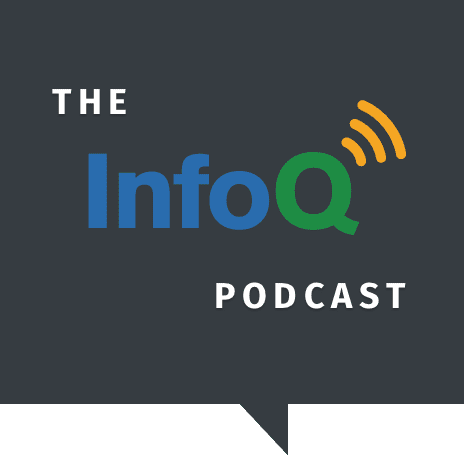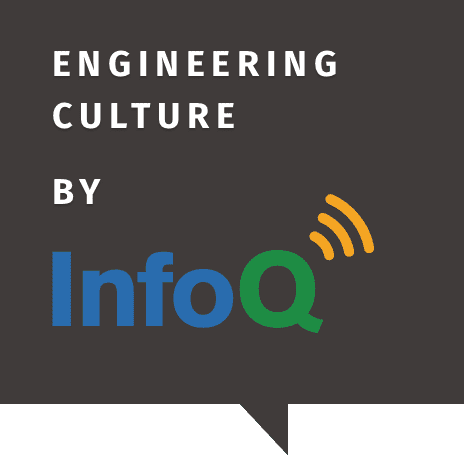InfoQ Homepage Architecture Content on InfoQ
-
[Video Podcast] Improving Valkey with Madelyn Olson
In this episode, Thomas Betts chats with Madelyn Olson, a maintainer of the Valkey project and a Principal Software Development Engineer at Amazon ElastiCache and Amazon MemoryDB. The conversation covers how Valkey started as an open source fork of Redis and how the maintainers optimized the memory usage and improved throughput.
![[Video Podcast] Improving Valkey with Madelyn Olson](https://imgopt.infoq.com/fit-in/150x109/filters:quality(80)/podcasts/valkey-performance-improvements/en/mediumimage/madelyn-olson-interviewee-1770041790255.jpeg)
-
Startup Software Architecture - You Never Really Throw it Away: a Conversation with David Gudeman
In this podcast, Michael Stiefel spoke with David Gudeman about software architecture for startups. The discussion starts by illuminating how to make decisions with imperfect information, and how uncertainty and ambiguity flow through all aspects of developing the architecture. This leads to analyzing how the architect must focus on both product strategy and technical decisions.
/podcasts/startup-software-architecture/en/mediumimage/david-gudeman-interviewee-1768983267396.jpeg)
-
[Video Podcast] AI-Driven Development with Olivia McVicker
In this episode, Thomas Betts chats with Olivia McVicker, a Senior Cloud Advocate at Microsoft about AI-driven software development. The conversation covers the current, mainstream AI coding assistants and gets into where those tools are quickly heading. They then look to the future of how the entire software development lifecycle will see the benefits of AI in the next few years.
![[Video Podcast] AI-Driven Development with Olivia McVicker](https://imgopt.infoq.com/fit-in/150x109/filters:quality(80)/podcasts/ai-driven-development/en/mediumimage/olivia-guzzardo-interviewee-1767869477379.jpg)
-
Somtochi Onyekwere on Distributed Data Systems, Eventual Consistency and Conflict-Free Replicated Data Types
In this podcast, InfoQ spoke with Somtochi Onyekwere on recent developments in distributed data systems, how to achieve fast, eventually consistent replication across distributed nodes, and how Conflict-free Replicated Data Type (CRDTs) can help with conflict resolution when managing data.
/podcasts/distributed-data-systems-consistency/en/mediumimage/somotochi-interviewee-1767782929526.jpeg)
-
2025 Key Trends: AI Workflows, Architectural Complexity, Sociotechnical Systems & Platform Products
In this end-of-year panel, the InfoQ podcast hosts reflect on AI’s impact on software delivery, the growing importance of sociotechnical systems, evolving cloud realities, and what 2026 may bring.
/podcasts/2025-year-review/en/mediumimage/end-of-year-podcast-interviewee-photo-1734601693541-1767366149078.jpg)
-
How Blameless Culture Transforms Engineering Teams
In this podcast Shane Hastie, Lead Editor for Culture & Methods spoke to Tameem Hourani about building a blameless engineering culture through radical transparency, focusing on system resilience over individual blame, and creating high-performing teams that can embrace change and learn from failures.
/podcasts/blameless-culture-transforms-engineering-teams/en/mediumimage/tameem-hourani-interviewee-1758539995149.jpg)
-
The Evolution of Code Review: From Bug-Finding to Team Building
In this podcast, Shane Hastie, Lead Editor for Culture & Methods, spoke to Greg Foster about the evolution and purpose of code reviews, building teams with kindness, expertise, and urgency, and how AI tools are changing software development.
/podcasts/evolution-code-review-bug-finding/en/mediumimage/greg-foster-interviewee-1756728305842.jpg)
-
Building a Resilient and Inclusive Engineering Culture with Matthew Card
In this podcast, Shane Hastie, Lead Editor for Culture & Methods, spoke to Matthew Card about his resilience framework (CAPSS - Confidence, Adaptability, Purpose, Social Support) which has helped him overcome career challenges and now guides him in building inclusive engineering cultures by empowering teams and breaking echo chambers.
/podcasts/building-resilient-inclusive-engineering-culture/en/mediumimage/matthew-card-interviewee-1757337337291.jpg)
-
Resilience, Observability and Unintended Consequences of Automation
In this podcast, Shane Hastie, the Lead Editor for Culture & Methods, spoke to Courtney Nash about her research on the unintended consequences of automation in software systems, the importance of learning from incidents, and maintaining human expertise in complex systems.
/podcasts/resilience-observability-automation/en/mediumimage/courtney-nash-interviewee-1740403416752.jpeg)
-
Building Responsible AI Culture: Governance, Diversity, and the Future of Development
Shane Hastie, Lead Editor for Culture & Methods spoke to Inna Tokarev Sela, CEO of illumex, about implementing generative AI in development teams, emphasizing the critical need for robust governance across data, policy enforcement, and explainability layers. She also discusses how intentional workplace policies and female-oriented mentorship programs have helped achieve gender balance in tech.
/podcasts/building-responsible-ai-culture/en/mediumimage/Inna-Tokarev-Sela-interviewee-photo-1738752448222.jpeg)

